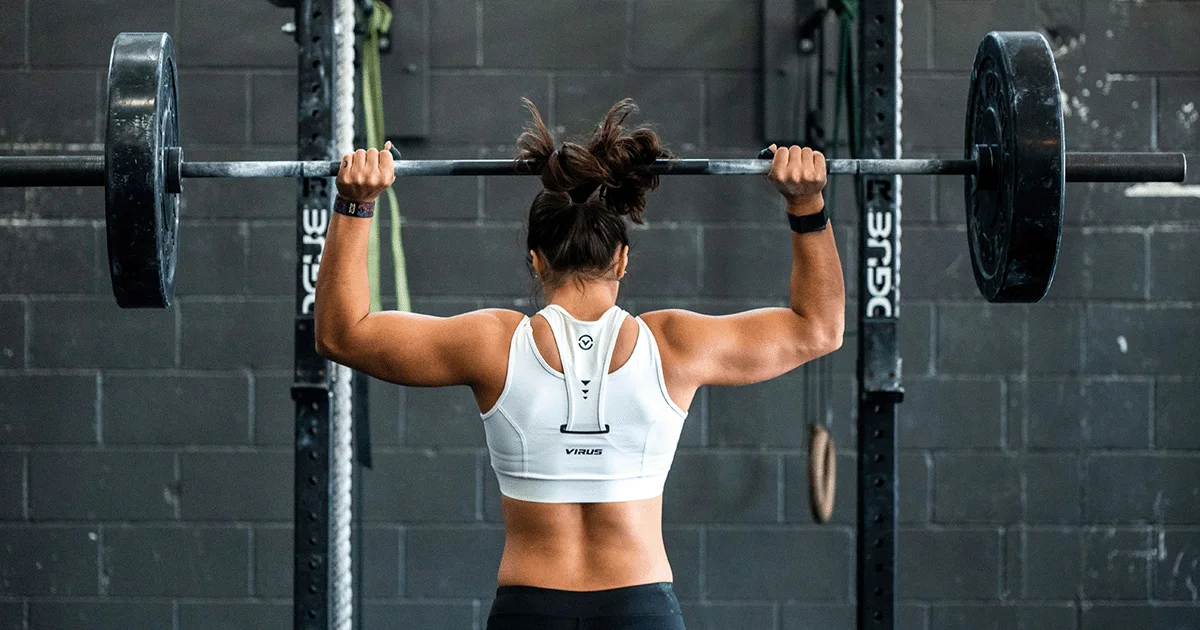Here's what we'll cover
Here's what we'll cover
Here's what we'll cover
Along with weights, bodybuilders often throw around the term “bulking.” If you’re bulking, that means you’re trying to add size—ideally in the form of muscle.
While strength training can help you build muscle, bulking also involves a specialized diet. This diet aims to give your body the additional calories and nutrients it needs to add mass.
Traditionally, bulking diets have involved consuming as much protein and carbs as you could stomach. But there are smarter and healthier ways to approach bulking.
What is bulking?
“Bulking” is one of the two main phases of competitive bodybuilding. During the bulking phase, a bodybuilder’s goal is to add size and muscle.
The other main phase of bodybuilding is “cutting.” Cutting usually starts a month or two before a competition. When cutting, bodybuilders shift their focus from muscle building to trimming body fat and improving muscle definition (Lenzi, 2019).
During the bulking phase, competitive bodybuilders tend to strength train as much as 5-6 times a week. They also adopt a hyper-energetic diet. That means they’re eating more calories than usual in an attempt to gain weight (Iraki, 2019).
The key elements of bulking
According to sports nutrition research, maintaining a positive energy balance is the key to bulking. That means you’re eating more calories than you’re burning. By doing this, you support anabolism—a metabolic process in which your body is adding cells and molecules rather than breaking them down (Iraki, 2019).
The number of calories you need to eat to maintain a positive energy balance—and how much mass you can add—depends on many factors. Your age, health status, bodybuilding experience, and training routine all matter when it comes to bulking (Iraki, 2019).
For example, if you’re new to bodybuilding, researchers have found that upping your caloric intake by as much as 2,000 calories can support significant muscle growth without adding a lot of extra body fat. But that’s assuming you’re healthy and also training frequently (Ward, 2002).
One study found that healthy men who added 2,010 calories to their daily diet—composed of approximately 356 g of carbohydrates and 106 g of protein—gained significant muscle and fat-free mass. In that study, the men also trained for 60 to 90 minutes, four days a week. Their training involved a mixture of aerobic and resistance exercise (Ward, 2002).
On the other hand, data suggests that trained athletes may not need to eat as many additional calories to add mass (Garthe, 2013). If you’re an experienced bodybuilder, adding a lot of extra calories to your diet may lead to fat gain instead of additional muscle (Iraki, 2019).
How to get started bulking
To start, use a free online calculator to estimate the number of daily calories you need to eat to maintain your current weight. Here’s one from the Mayo Clinic and another from the American Council on Exercise.
Once you have that starting figure, aim to add 10% to 20% more calories to your diet. Numerous studies have found this is a safe, effective target if you’re trying to add muscle mass (Houston, 1999; Iraki, 2019).
Your goal is to add between .25% and .5% of your total body weight each week. For example, if you weigh 180 pounds, your goal is to add roughly 0.5-1.0 pounds of weight each week. If you’re an experienced bodybuilder, experts recommend that you stick to the lower end of these targets to avoid adding unwanted fat (Iraki, 2019).
Foods to eat for bulking
When designing meal plans for bulking, it’s helpful to think of foods based on their major macronutrient components—aka, their “macros.” The three major macronutrient groups are proteins, carbohydrates, and fats.
Protein
The amino acids found in dietary proteins are the building blocks of muscle. Whether you get your protein from foods or a protein powder supplement, you need to hit your protein targets.
Every day, your goal is to eat roughly 1.6 to 2.2 grams of protein per kilogram of body weight (g/kg/day). That means if you weigh 180 pounds (approx. 82 kg), your daily protein intake should land somewhere between 131-180 g (Iraki, 2019).
Some examples of protein-rich foods include (Bradlee, 2017):
Meats such as beef, lamb, and pork
Poultry (chicken breast, turkey)
Fish and seafood
Dairy (milk, yogurt, cheese)
Legumes (beans and peanuts), soy, nuts, and seeds
Eggs
Protein supplements
You want to spread out your protein intake throughout the day. Also, if you’re concerned about the specific types or qualities of the protein molecules you’re eating—something that has gotten a fair amount of research attention—the evidence to date indicates that you don’t have to worry about this unless you’re eating a plant-based diet (Iraki, 2019).
Fats
There’s some indication that eating too much or too little fat may disrupt the body’s production of testosterone in ways that may interfere with bodybuilding (Iraki, 2019).
So, for now, it’s prudent to eat a moderate amount of fat. The American Council of Sports Medicine recommends getting between 20% and 35% of your calorie intake from fats (ADA, 2009), which should work out to about 0.5 to 1.5 g/kg/day (Iraki, 2019).
Some examples of dietary fats include olive oil, avocado, nuts and seeds, and fatty fish (such as salmon, herring, mackerel, and sardines). Peanut butter, nut butters, and dairy products (such as cheese, milk, butter, and Greek yogurt) are also sources of fat, but the research is mixed regarding the health effects of these foods (Liu, 2017).
Carbohydrates
Carbs get a lot of bad press these days. Much of that has to do with the rising popularity of ketogenic diets, which are basically very low-carb dieting plans linked to weight loss and other benefits (O'Neill, 2020).
But for people trying to bulk up, research suggests that you need an adequate carb intake. Carbohydrates both support the body’s micronutrient needs and its regulation of thyroid hormones (Iraki, 2019). There’s also evidence suggesting that muscle mass may decrease among people who strength train following a ketogenic diet (Vargas, 2018).
Aim to eat 3-5 g/kg/day of carbohydrates (Iraki, 2019). There are countless carb-rich foods to choose from. Some healthy examples include fruits, vegetables, starchy vegetables such as sweet potatoes, and whole-grain foods such as quinoa or brown rice (Holesh, 2021).
If you’re trying to decide whether to eat more fats, proteins, or carbohydrates to fulfill your daily energy needs, the bulking research suggests you prioritize hitting your protein and carb minimums first. Researchers have also found that bodybuilders typically eat 5-6 meals a day. But it’s unclear which meal frequency is best if you’re bulking (Iraki, 2019).
Bulking supplements
There are countless bulking supplements to choose from, and most have not been adequately studied—especially when it comes to their long-term health effects.
A few are especially popular. Although more research is needed, several supplements may aid your bulking diet when used in moderation. These include (Iraki, 2019):
Creatine, which acts as an energy source in skeletal muscle. Research suggests taking 3 g daily is enough to support bulking without undue health risks.
Beta-alanine, which supports strength training. Taking 3-5 g daily during training may help improve performance, and therefore gains.
Citrulline malate, which supports strength training performance. Taking 8 g/day just before lifting may be beneficial.
Is bulking safe?
That’s unclear. There is a lack of long-term, high-quality research among bodybuilders who eat a hypercaloric diet. But the data we have suggests that if you stick within the macronutrient guidelines outlined above—and you avoid eating too many processed or sugar-loaded foods—you can probably bulk up without any immediate health concerns (Iraki, 2019).
Being precise and deliberate about your macros and eating healthy foods is a great way to hit your calorie targets, add weight, gain muscle mass, and mitigate any potential health problems.
DISCLAIMER
If you have any medical questions or concerns, please talk to your healthcare provider. The articles on Health Guide are underpinned by peer-reviewed research and information drawn from medical societies and governmental agencies. However, they are not a substitute for professional medical advice, diagnosis, or treatment.
References
American Dietetic Association, Dietitians of Canada, American College of Sports Medicine, Rodriguez, N. R., Di Marco, N. M., & Langley, S. (ADA). (2009). American College of Sports Medicine position stand. Nutrition and athletic performance. Medicine and Science in Sports and Exercise , 41 (3), 709–731. Doi: 10.1249/MSS.0b013e31890eb86. Retrieved from https://pubmed.ncbi.nlm.nih.gov/19225360/
Bradlee, M. L., Mustafa, J., Singer, M. R., & Moore, L. L. (2017). High-Protein Foods and Physical Activity Protect Against Age-Related Muscle Loss and Functional Decline. The Journals of Gerontology. Series A, Biological Sciences and Medical Sciences , 73 (1), 88–94. doi: 10.1093/gerona/glx070. Retrieved from https://pubmed.ncbi.nlm.nih.gov/28549098/
Englyst, K. N., Liu, S., & Englyst, H. N. (2007). Nutritional characterization and measurement of dietary carbohydrates. European Journal of Clinical Nutrition , 61 Suppl 1 , S19–S39. doi: 10.1038/sj.ejcn.1602937. Retrieved from https://www.nature.com/articles/1602937?draft\u003dcollection
Garthe, I., Raastad, T., Refsnes, P. E., & Sundgot-Borgen, J. (2013). Effect of nutritional intervention on body composition and performance in elite athletes. European Journal of Sport Science , 13 (3), 295–303. doi: 10.1080/17461391.2011.643923. Retrieved from https://www.tandfonline.com/doi/pdf/10.1080/17461391.2011.643923
Holesh, J. E., Aslam, S., & Martin, A. (2021). Physiology, carbohydrates. [Updated Jan. 16, 2021]. In: StatPearls [Internet]. Retrieved from https://www.ncbi.nlm.nih.gov/books/NBK459280/
Houston M. E. (1999). Gaining weight: the scientific basis of increasing skeletal muscle mass. Canadian Journal of Applied Physiology = Revue canadienne de physiologie appliquee , 24 (4), 305–316. doi: org/10.1139/h99-024. Retrieved from https://pubmed.ncbi.nlm.nih.gov/10470448/
Iraki, J., Fitschen, P., Espinar, S., & Helms, E. (2019). Nutrition Recommendations for Bodybuilders in the Off-Season: A Narrative Review. Sports (Basel, Switzerland) , 7 (7), 154. doi: 10.3390/sports7070154. Retrieved from https://pubmed.ncbi.nlm.nih.gov/31247944/
Lenzi, J. L., Teixeira, E. L., de Jesus, G., Schoenfeld, B. J., & de Salles Painelli, V. (2021). Dietary strategies of modern bodybuilders during different phases of the competitive cycle. Journal of Strength and Conditioning Research, 35 (9), 2546–2551. doi:10.1519/JSC.0000000000003169. Retrieved from https://pubmed.ncbi.nlm.nih.gov/31009437/
Liu, A. G., Ford, N. A., Hu, F. B., Zelman, K. M., Mozaffarian, D., & Kris-Etherton, P. M. (2017). A healthy approach to dietary fats: understanding the science and taking action to reduce consumer confusion. Nutrition Journal , 16 (1). doi: 10.1186/s12937-017-0271-4. Retrieved from https://link.springer.com/article/10.1186/s12937-017-0271-4
O'Neill, B., & Raggi, P. (2020). The ketogenic diet: pros and cons. Atherosclerosis, 292 , 119–126. doi: 10.1016/j.atherosclerosis.2019.11.021. Retrieved from https://pubmed.ncbi.nlm.nih.gov/31805451/ .
Paoli, A., Rubini, A., Volek, J. S., & Grimaldi, K. A. (2013). Beyond weight loss: a review of the therapeutic uses of very-low-carbohydrate (ketogenic) diets. European Journal of Clinical Nutrition , 67 (8), 789–796. doi: org/10.1038/ejcn.2013.116. Retrieved from https://www.nature.com/articles/ejcn2013116?fbclid=IwAR2LMycDVsWcww3q6WljxGSVmD6-tIZ4mWYKLnyUFFO-busZw3q8TogLYQI
Rozenek, R., Ward, P., Long, S., & Garhammer, J. (2002). Effects of high-calorie supplements on body composition and muscular strength following resistance training. The Journal of Sports Medicine and Physical Fitness , 42 (3), 340–347. Retrieved from https://pubmed.ncbi.nlm.nih.gov/12094125/
Vargas, S., Romance, R., Petro, J. L., Bonilla, D. A., Galancho, I., Espinar, S., Kreider, R. B., & Benítez-Porres, J. (2018). Efficacy of ketogenic diet on body composition during resistance training in trained men: a randomized controlled trial. Journal of the International Society of Sports Nutrition , 15 (1), 31. doi: 10.1186/s12970-018-0236-9. Retrieved from https://pubmed.ncbi.nlm.nih.gov/29986720/









